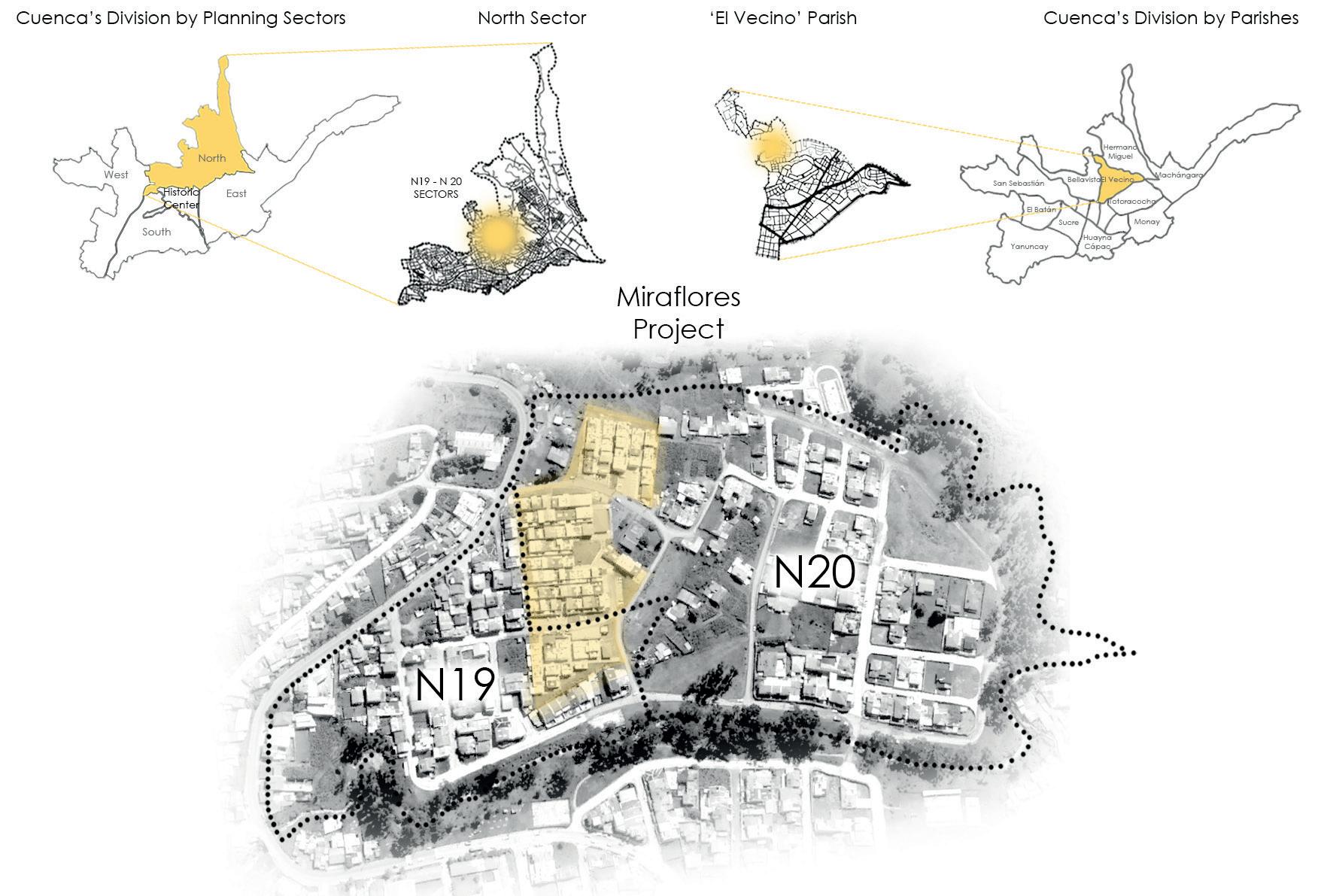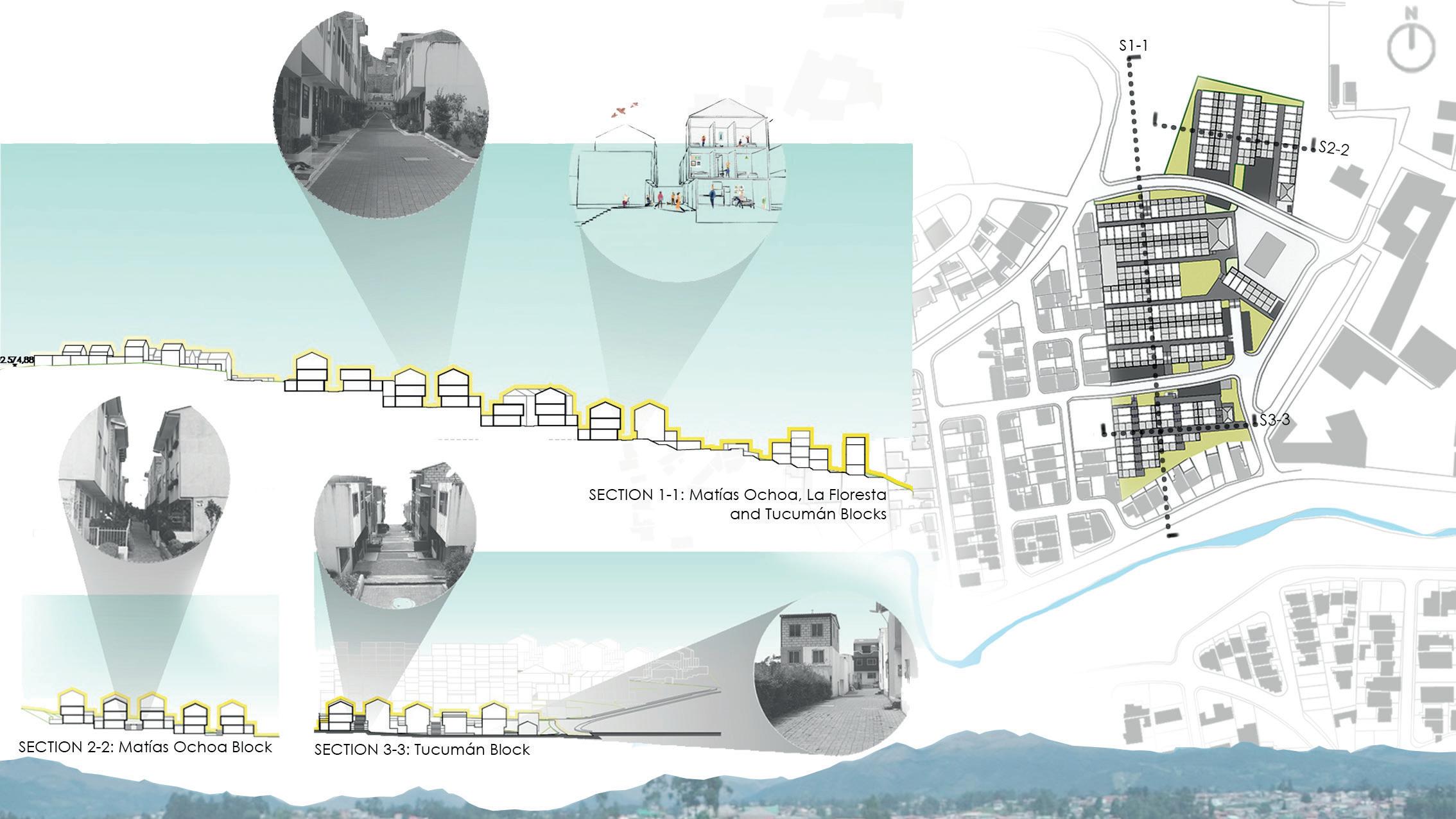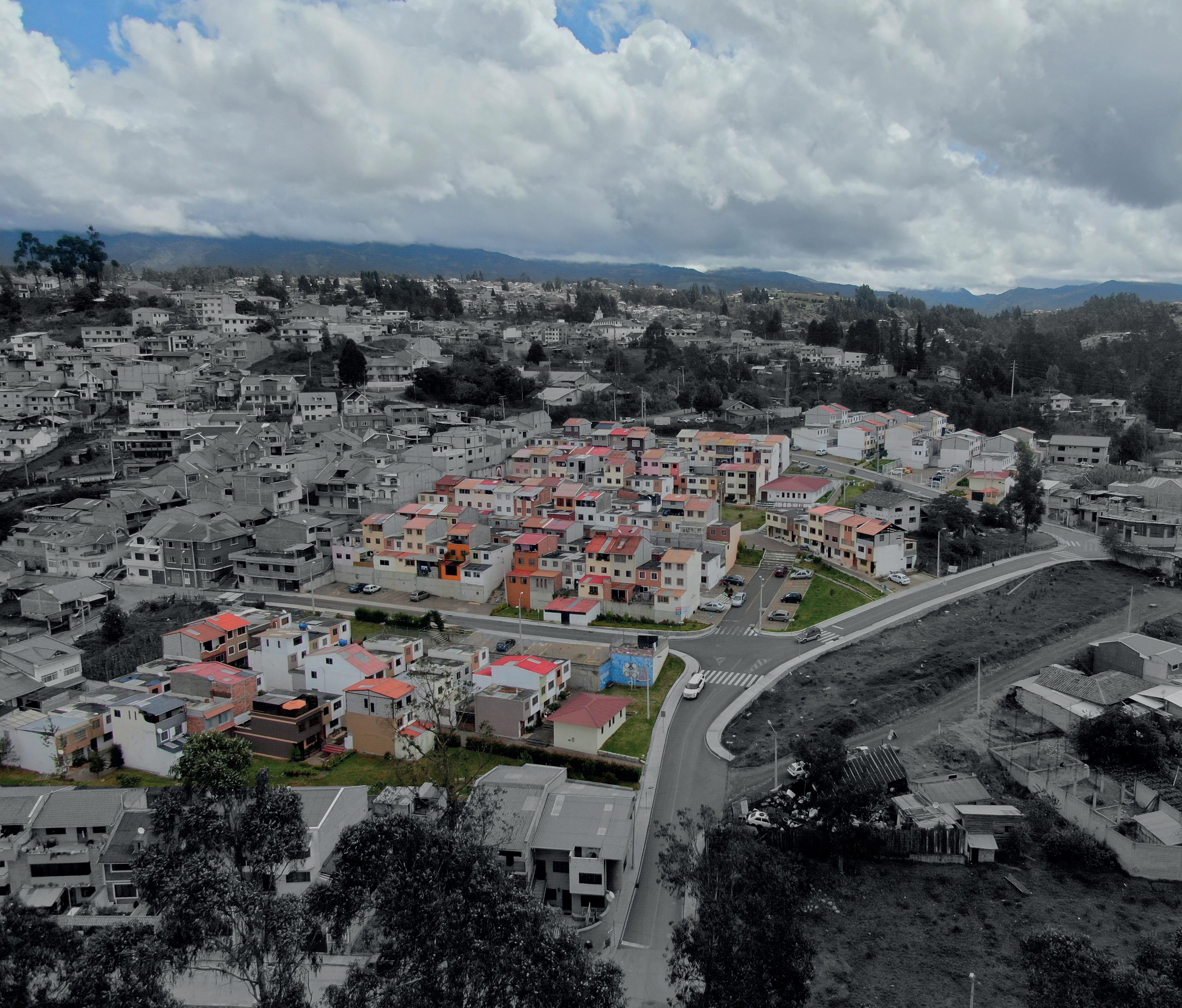
2 minute read
2.1 Why Miraflores?
Cuenca’s Division by Planning Sectors North Sector
“El Vecino” Parish
Advertisement
Cuenca’s Division by Parishes
Figure 2.1. Miraflores Location by its planning sectors and parish. By author Andrea Estefanía Calle Bustamante | Manchester School of Architecture
SECTION 1-1: Matías Ochoa, La Floresta and Tucumán Blocks

SECTION 2-2: Matías O. Block SECTION 3-3: Tucumán Block
Figure 2.2. Sections of Miraflores, showing the pathways between units and the height difference. By Author

Photo 2.1. Miraflores (Color). By author Andrea Estefanía Calle Bustamante | Manchester School of Architecture
Selecting the case study Miraflores, a project built in 2012, would settle a precedent on how social housing projects can be refurbished and in the case of building new developments, what aspects they will need to consider to connect its residents and the city. Additionally, the Research Group “Contextualización de Indicadores sustentables para vecindarios en la ciudad de CuencaEcuador” of the University of Cuenca, collected information from interviews with the developers, surveys to residents and some photographic material in the period 2018-2019; they have authorized and shared their information for this thesis development. Miraflores has 182 housing units divided in 3 blocks: Matías Ochoa, La Floresta and Tucumán. Its location is near the borders of the urban area of Cuenca, additionally 2 blocks of Miraflores are situated under the zone N20 and Tucumán, the bottom one, on N19; which means that the project needed to respond to different regulations in terms of urban planning (Figure 2.1). In terms of parishes, is situated in “El Vecino” parish, which translates to The Neighbor. Miraflores is also placed on steep terrain and the roads that divide the project, are used for vehicular access to Miraflores’ parking lots (Figure 2.2 and Photos 2.1, 2.2 and 2.3). Miraflores is a social housing project that has lots of potential for their typology of housing units and the particularities of its location. El Vecino is the third most populated parish in Cuenca (Riera, 2017), and it has poverty issues additionally to a conflict with the use of land, meaning that the current use is more than the resistance and capability of the land as a resource, which indicates over-use through construction and other activities that takes too much pressure on the soil (Ortiz, 2018). This can be seen on following subjects where a comparison between regulation and current construction is shown.
Photo 2.2. View of Matías Ochoa’s parking lot and its communal house (Left). Source: University of Cuenca’s Research Group, 2018


Photo 2.3. View of Matías Ochoa’s parking lot and part of La Floresta housing units (Left). Source: University of Cuenca’s Research Group, 2018










